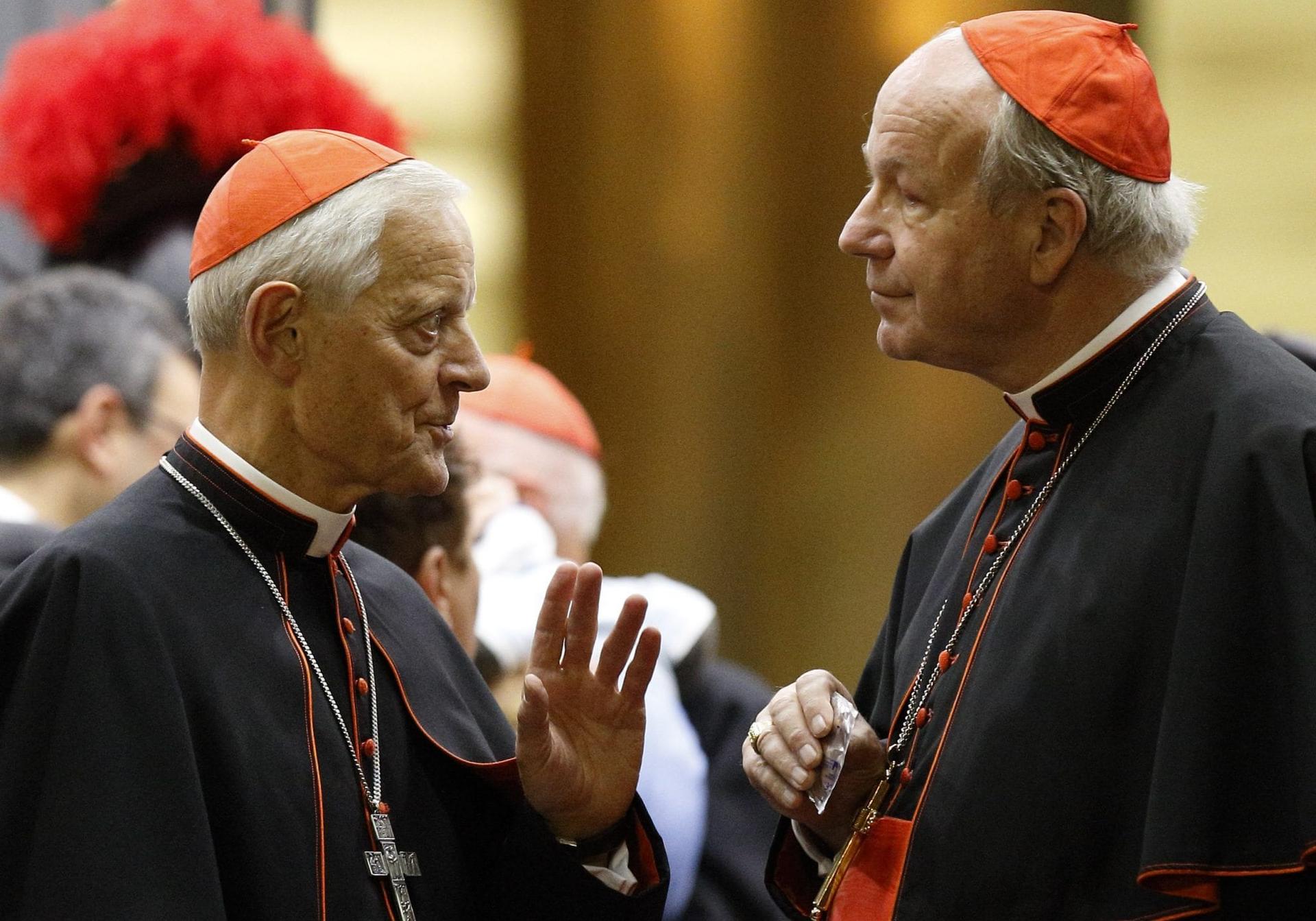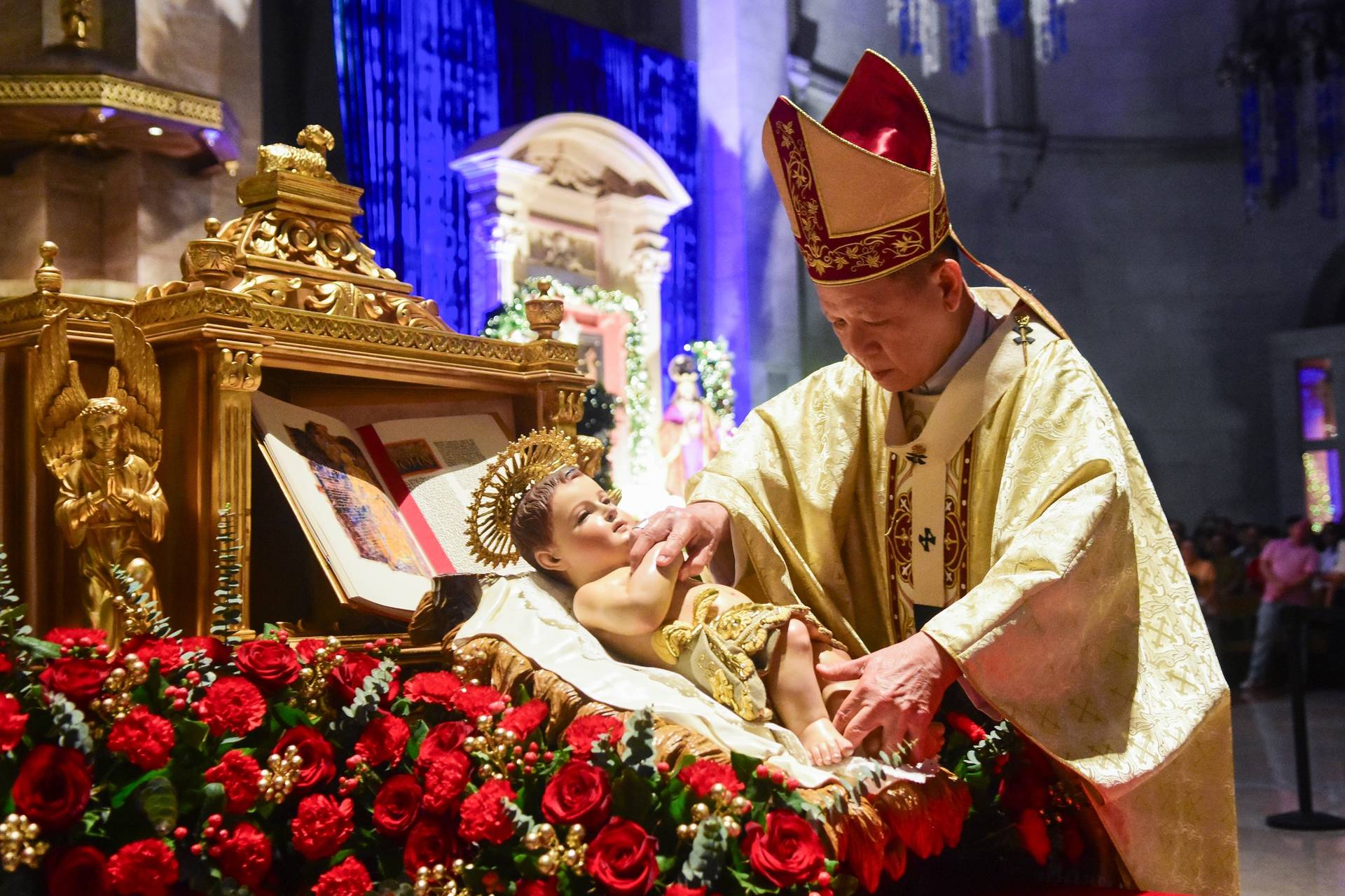ROME — Among the more than 40 lay observers at the synod on the family, none is divorced and remarried, even as that issue continues to be debated inside the synod hall. And the bishops themselves are single men, without firsthand experience with spouses and children.
That makes some Catholics wonder if bishops are really up to the task of debating pastoral responses to modern family issues.
As Mary McAleese, the former president of Ireland, said in a recent interview, “I have to ask the question: If I wanted expertise on the family, I honestly cannot say that the first thing that would come into my mind would be to call together 300 celibate males.”
But one American cardinal rejects the premise. He says bishops have many ways to understand the challenges facing families — and what they need from the Church to help them with those challenges.
“The idea that a bishop would never have heard any of that strikes me as not altogether fair in its assessment in how we live and move,” Cardinal Donald Wuerl of Washington said in an interview with Crux.
“This summer I spent some time with family, next generation family, and their friends, and we got into this, and their understanding, and their friends’ understanding, of what life is all about, of what relationships are all about,” he said.
Plus, he said, he scans four newspapers each morning, and “if I haven’t gathered from those four newspapers every morning that there’s a problem out there, it’s not going to happen.”
Wuerl, fresh off hosting Pope Francis during his visit to Washington last month and handpicked by Francis to help draft the synod’s final report, said the pastoral debate really comes down to “encounter and correcting, and encountering and accompanying.”
“How do you meet with someone whose marriage has just collapsed, how do you meet with someone whose wife just walked out on him or whose husband walked out on her leaving children, and not learn that there’s enormous pain here and that they’re looking for some connection with the Church?” he asked. “How do you deal with, how do you talk to, how do you meet with people who are living in a gay relationship and not understand what they’re talking about, if you listen to them?”
At Monday’s press briefing, the Rev. Thomas Rosica, a Vatican spokesman, said that in addition to the divorced and remarried, bishops are discussing how to handle other “new family structures” as well, including single parents, widows raising children, families led by same-sex couples, refugee families, and families trapped in intergenerational poverty.
“I think that’s what the pope is saying, go out, go out and encounter them,” he continued.
“We should be the first ones to want to accompany, because wasn’t that Jesus’ style?” he said. “They complained that he ate with sinners, and that he was with the wrong crowd, and he’s saying, ‘It’s not the healthy who the need the physician.’”
Wuerl spoke to Crux at the North American College in Rome Monday, just hours after reports surfaced that a group of cardinals had signed a letter to Pope Francis expressing concern about how the synod was structured.
He rejected the notion that the synod is rigged, and that somehow certain viewpoints aren’t being heard.
“You can get up in the synod and say anything you want,” he said.
When it comes to the synod’s conclusion, Wuerl said that only those items that enjoy “considerable support” would be included in the final document, known as the relatio.
So if the so-called Kapser Proposal, which would create a mechanism to welcome divorced and remarried Catholics back to Communion, isn’t included in the relatio, does that mean most bishops rejected it?
“I think that would be a legitimate conclusion,” Wuerl said.
And what will it take to get the Kasper Proposal, or anything else, included in the relatio?
“I think if you get a read in a house as big as this, if you get a sense that there’s 80, 85 percent of the people there are saying, ‘This is what we want said,’ that is pretty good consensus,” he said.
On Oct. 25, the day the synod wraps up, the relatio will be passed on to Pope Francis. Whether the pope chooses to publish it as is, make changes, or hold it while he considers its contents, is an open question.
Despite the consternation expressed by some Catholics both inside the synod hall and out, Wuerl said he hears words of support from most of his flock about the Church’s deliberations.
“If it were all that cut-and-dried, then we wouldn’t be having a synod, or we wouldn’t sense the need of it,” he said. “The people I talk to, they say, ‘I pray for you and the synod.’ They’re not saying, ‘Bring it to an end and come out, get out of that.’”

















